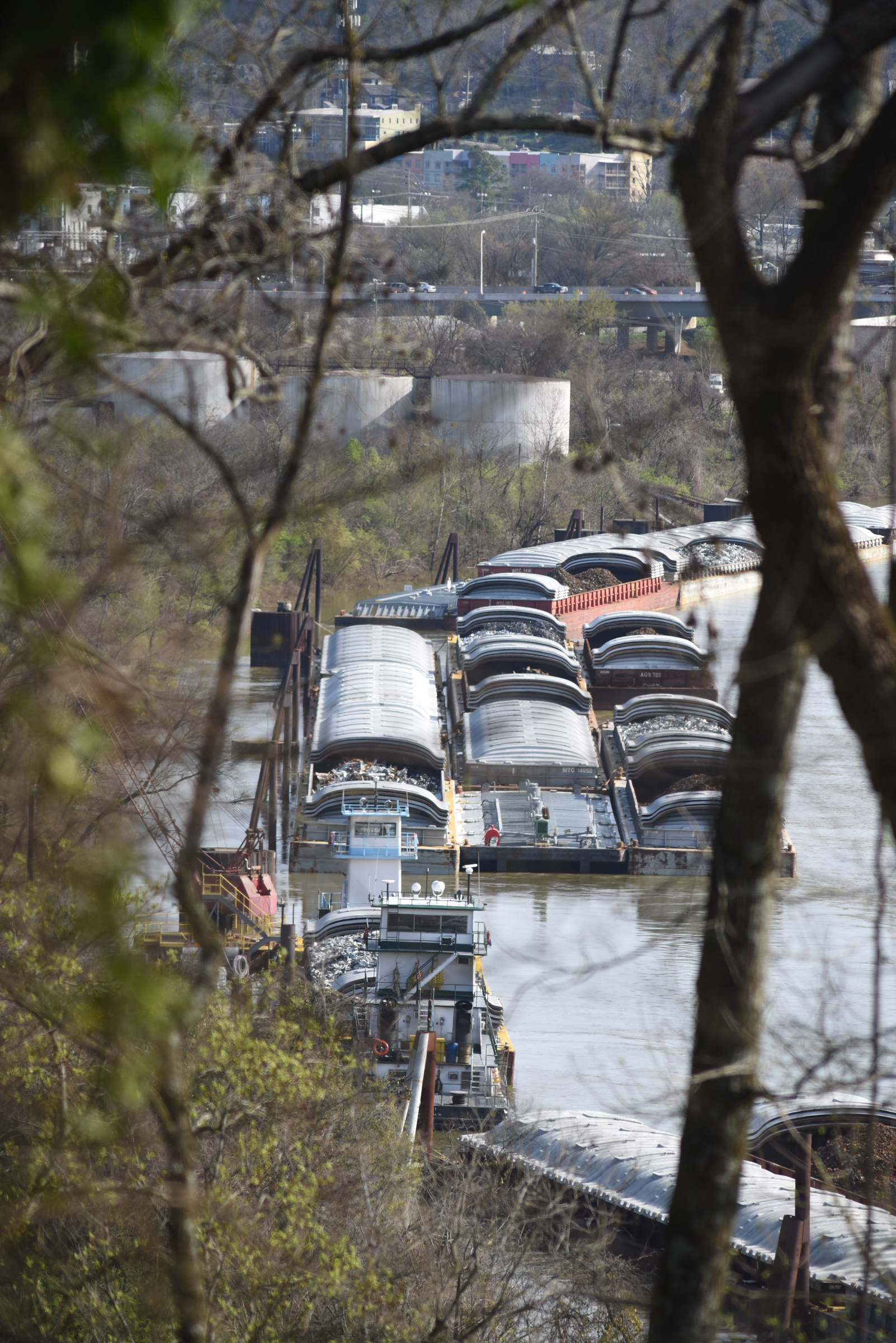Record rainfalls have shut down part of the Tennessee River for barge traffic for most of the past five weeks, but shippers relying on the river for transports could get some relief next week.
With drier weather in the forecast, the rain-swollen Tennessee River could be lowered to a level to allow barge traffic to resume on the Nickajack Reservoir and through the Chickamauga Lock by next Thursday, TVA River Forecast Center Manager James Everett said Friday.
"We're looking at a forecast that is mostly dry for the next week or so with only spotty rain showers so we're feeling much better about the weather outlook than we have been seeing lately," Everett said. "But with all the rain we've gotten, we're still spilling at all nine of our dams on the Tennessee River."
The Tennessee River in Chattanooga, which rose 12 feet above normal last week - only three feet below flood stage - was eight feet above normal on Friday. TVA is continuing to spill heavy amounts of water through the Chickamauga Dam, keeping river flow too high for most river navigation and lock use.
"No barges have been moving so our boats have pretty much been tied up and not running - but we have gotten them very clean right now," Pete Serodino IV said Friday. "It's not been solid, but the river has been pretty much closed off here since Christmas. "
Dan Paty with JIT Chemical in Chattanooga said most river shipments have been stalled for weeks in the worst shutdown of barge traffic in Chattanooga since the floods of 2013.
"We're hanging in there, but it's getting to the point where we need these shipments as soon as possible," he said.
At MakSteel in Chattanooga, safety manager Robert Greever said no barges have been unloaded in Chattanooga since Feb. 8.
"I've been with the company for more than six years and this is the longest most problematic situation we've seen for barge unloading," he said. "Barges are hands down the cheapest way to ship heavy bulky material like the steel coils we handle. We've been muddling through it, even without one of our cranes, but it hasn't been easy."
The U.S. Army Corps of Engineers, which operates the Chickamauga Lock, estimates 35.7 million tons of commodities were moved on the Tennessee River during 2017, the latest year for which total figures are available.
Since Feb. 13, there have been only two days - Feb. 22-23 - when flow on the Tennessee River has allowed barge traffic through Chattanooga.
TVA's biggest reservoir at Norris Lake near Knoxville rose 10 feet above its summertime levels this winter and remains well above the normal wintertime level TVA uses to ensure there is adequate storage capacity for heavy spring rains.
"We're down to normal winter levels on the mainstream river, but our reservoirs remain elevated and there are still plenty of flood damaged areas in the western part of the Valley," Everett said. "We do not want to prematurely keep too much water in our reservoirs and then get hit with more rain in late March or April and not have anywhere to store it. We have to make sure we position ourselves for the future."
Rains in the Tennessee Valley during February were more than twice the normal level following the record year for rainfall in 2018.
The heavy rains swelled TVA's upstream reservoirs which the federal utility uses to store water and limit flooding downstream. TVA estimates its network of dams have saved more than $1.5 billion of damages in Chattanooga.
Nonetheless, the Tennessee Emergency Management Agency says four weather-related deaths have been recorded after heavy rainfall caused flooding of homes, farms and businesses starting Feb. 23. TEMA says 83 of 95 counties reported some flood damage.
On Friday, the U.S. Department of Transportation announced the immediate availability of $10 million in "quick release" funds to help repair roads damaged by flooding and landslides in Tennessee.
"These emergency relief funds will help Tennessee expedite the repair process and restore access to roads as quickly as possible," said U.S. Transportation Secretary Elaine L. Chao.
Total road damages in Tennessee are estimated at more than $75 million. The "quick release" payment announced Friday is considered a down payment while the state continues damage assessments for long-term repairs, Chao said.
Contact Dave Flessner at dflessner@timesfreepress.com or at 757-6340

